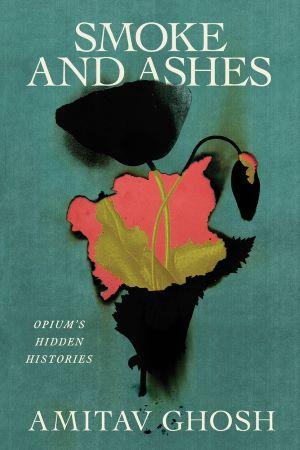Smoke and Ashes: Opium's Hidden Histories by Amitav Ghosh (2023, Farrar Strauss Giroux, 397 pp., $32 HB)

The Lowell and Forbes family fortunes are among those founded by early 19th-century dope dealers, and notably, so were the Delano riches. Young Warren Delano came back wealthy from a handful of years in the opium business and married into another well-off family. His daughter from that union later gave birth to a son, Franklin Delano Roosevelt, who would become the 32nd president of the United States.
This is one of the "hidden histories" of world-class fiction and non-fiction writer Amitav Ghosh's Smoke and Ashes. But like much of the literature on opium, the story of the American opium traders is centered on the West, and Ghosh's latest work wants to recenter the opium story on the East, especially on India and China, but to a lesser degree to the kingdoms of Southeast Asia.
An Indian with long experience in both China and the West, Ghosh is superbly situated to tell the tale of how the British East India Company's need to come up with a commodity to counter the draining impact of Chinese tea imports created a system of massive opium production in India to be exported to China -- even though the Chinese government did not want it.
The economic engine that was opium not only fattened the purses of the Company and the crown, it also made the British colonial enterprise sustainable, shaped the Indian economy down to the present day, and created massive opium addiction problems in China. The British increased opium production by 2000 percent over the course of a century, employing a million Indian peasant families in coerced poppy growing under a strict, race- and caste-based bureaucratic hierarchy that benefited the Company, not the peasants.
Ghosh shows how the structuring of the British opium plantations in Bengal and the Gangetic Plain, while a money-making machine for the Company, created social and political patterns and monopolistic practices that have retarded social and economic growth to this day. He is particularly illuminating when comparing the situation in Bengal with that in western India, where the princely states were able to resist British imperialism much longer. There, local principalities controlled (and profited from) the poppy crop, and a thriving merchant class thrived even more from the opium trade.
But this is not straight economic and social history. Smoke and Ashes is also a very personal tale, with Ghosh telling the story of his family in the trade, where they were essentially bookkeepers for opium-related businesses. It is a deft touch that makes the opium story that much more concrete.
Ghosh is especially fascinating as he untangles the multiple threads of Western, Indian, and Chinese culture woven together in the opium trade. From tchotchkes sitting on family shelves to bureaucratic innovations such as the British adoption of the Chinese civil service examination system, the poppy's pull is revealed. There are many "hidden histories" here, indeed.
Ghosh writes that opium has its own agency -- that it can persuade humans to propagate it widely -- but at heart, Smoke and Ashes is not about opium; it is about colonialism, imperialism, and racial capitalism. If opium does have its own agency, certain groups of humans have certainly benefited from it, even at the expense of other humans. And that's an all too human story.
This is an important and fascinating account of a critical development in world history. And because the author is an artist of the written word, it is a pleasure to read.
This work by StoptheDrugWar.org is licensed under Creative Commons Attribution-ShareAlike 4.0 International
Add new comment